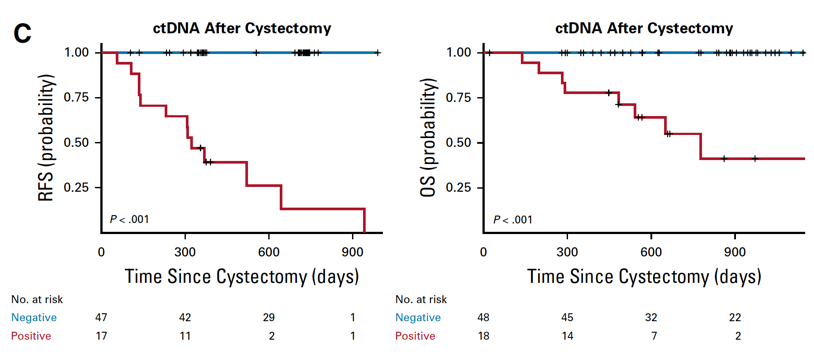(UroToday.com) The European Association of Urology (EAU) section of the ESUR lecture was provided by Dr. Kerstin Junker who presented the best papers of translational research published in 2020. Dr. Junker notes that the intestinal microbiome has a role in checkpoint inhibition, in particularly the treatment of metastatic renal cell carcinoma. Secondly, circulation DNA in the blood plasma has emerged as a new diagnostic tool, particularly for muscle-invasive bladder cancer.
Indeed, for the systemic therapy of metastatic renal cell carcinoma, there is a growing spectrum of single, combination and sequence options for therapy, with a need for stratification based on prognosis and predictive biomarkers. Dr. Junker notes that there are several parameters, including:
- Tumor parameters: molecular signatures for antiangiogenic and checkpoint inhibition
- Host (systemic) parameters: the intestinal microbiome, which may have protumorigenic effects, dysbiosis due to antibiotics (a reduced effect of immune checkpoint blockade), and/or a microbiome fingerprint (predicting response to immune checkpoint blockade)
The first study Dr. Junker discussed was by Derosa et al. entitled “Gut Bacteria Composition Drives Primary Resistance to Cancer Immunotherapy in Renal Cell Carcinoma Patients” published in European Urology.1 The objective of this study was to evaluate the predictive value of stool bacteria composition for immune checkpoint blockade efficacy in a cohort of advanced renal cell carcinoma patients. There were 69 fecal samples collected from advanced RCC patients treated with nivolumab and enrolled in the GETUG-AFU 26 NIVOREN microbiota translational substudy phase 2 trial, in addition to 2,994 samples of feces from healthy volunteers. The authors found that recent antibiotic use (16%) reduced objective response rates from 28% to 9% (p < 0.03) and markedly affected the composition of the microbiota:

The authors also performed preclinical studies in renal cell carcinoma-bearing mice that received a fecal transplant from renal cell carcinoma patients resistant to immune checkpoint blockade, which allowed assessment of a cause-effect relationship between gut bacteria composition and clinical outcomes for immune checkpoint blockade. They found that these mice were successfully compensated with either fecal transplant from responding renal cell carcinoma patients or beneficial commensals identified by whole-genome sequencing metagenomics data (Akkermansia muciniphila and Bacteroides salyersiae).
Cell free DNA is part of a liquid biopsy, that may be derived from blood, urine, seminal fluid, etc and is released from almost all cells in the body. Circulating tumor DNA is released specifically from tumor cells and represents only a small fraction of cell free DNA. Circulating tumor DNA is detected based on tumor-specific DNA-alterations, which may include mutations, copy number alterations, and DNA-methylation. The advantage of circulating tumor DNA is that it overcomes the problems of tumor heterogeneity, specifically between the primary tumor and a metastatic lesion, as well as between different sites of metastasis. The second article discussed by Dr. Junker was by Vanderkerkhove et al. entitled “Plasma ctDNA is a tumor tissue surrogate and enables clinical-genomic stratification of metastatic bladder cancer” published in Nature Communications [2]. Metastatic bladder cancer recently has an increasing spectrum of various therapies and there is an urgent need for predictive biomarkers. Circulating tumor DNA has been confirmed in patients with muscle-invasive bladder cancer and better reflects late stage disease rather than primary tumor tissue. This study profiled circulating tumor DNA samples from 104 metastatic urothelial carcinoma patients, and compared profiles to same-patient tumor tissue obtained during surgery:

The targeted sequencing was a 50-60 gene panel, and the circulating tumor DNA fraction was >1% in 85% of patients with a median fraction of 8%. Circulating tumor DNA was not associated with primary tumor resection and decreased due to systemic treatment. Among 71 metastatic urothelial carcinoma patients that had cell free DNA collected prior to starting systemic therapy, circulating tumor DNA level was an independent prognostic factor for overall survival (low vs high ctDNA HR 3.1, 95% CI 1.3 to 7.5):

Additionally, mutations of circulating tumor DNA reflected mutations in related tissue from the tumor:

These results are complementary to previous studies in this disease space. Christensen et al. [3] assessed the prognostic and predictive impact of ultra-deep sequencing of cell-free DNA in 68 patients before and after cystectomy and during chemotherapy. They found that the presence of circulating tumor DNA was highly prognostic at diagnosis before chemotherapy (HR 29.1; p = 0.001), and after cystectomy circulating tumor DNA analysis correctly identified all patients with metastatic relapse during disease surveillance (100% sensitivity, 98% specificity). As follows are the Kaplan-Meier curves for recurrence-free survival and overall survival for circulating tumor DNA after radical cystectomy:

Dr. Junker noted that circulating tumor DNA in metastatic urothelial carcinoma is stable and detectable in the majority of patients and may be a more representative snapshot rather than single (primary) tumor samples. It also has excellent prognostic and predictive value and allows detection of aggressive (metastatic) disease at an earlier time point. Dr. Junker concluded by highlighting that personalized therapy is feasible in the near future in urologic oncology based biomarkers.
Presented by: Kerstin Junker, Prof. Dr. med, Professor and Chair of the Department of clinical-experimental research of Universität des Saarlandes, Saarbrücken (UKS), Homburg, Germany
Written by: Zachary Klaassen, MD, MSc – Urologic Oncologist, Assistant Professor of Urology, Georgia Cancer Center, Augusta University/Medical College of Georgia, Twitter: @zklaassen_md during the 18th Meeting of the EAU Section of Oncological Urology (ESOU21), January 29-31, 2021
References:
1. Derosa L, Routy B, Fidelle M, et al. Gut Bacteria Composition Drives Primary Resistance to Cancer Immunotherapy in Renal Cell Carcinoma Patients. Eur Urol2020 Aug;78(2):195-206.
2. Vandekerkhove G, Lavoie JM, Annala M, et al. Plasma ctDNA is a tumor tissue surrogate and enables clinical-genomic stratification of metastatic bladder cancer. Nat Commun.2021 Jan 8;12(1):184.
3. Christensen E, Birkenkamp-Demtroder K, Sethi H, et al. Early detection of metastatic relapse and monitoring of therapeutic efficacy by ultra-deep sequencing of plasma cell-free DNA in patients with urothelial bladder carcinoma. J Clin Oncol2019 Jun 20;37(18):1547-1557.


